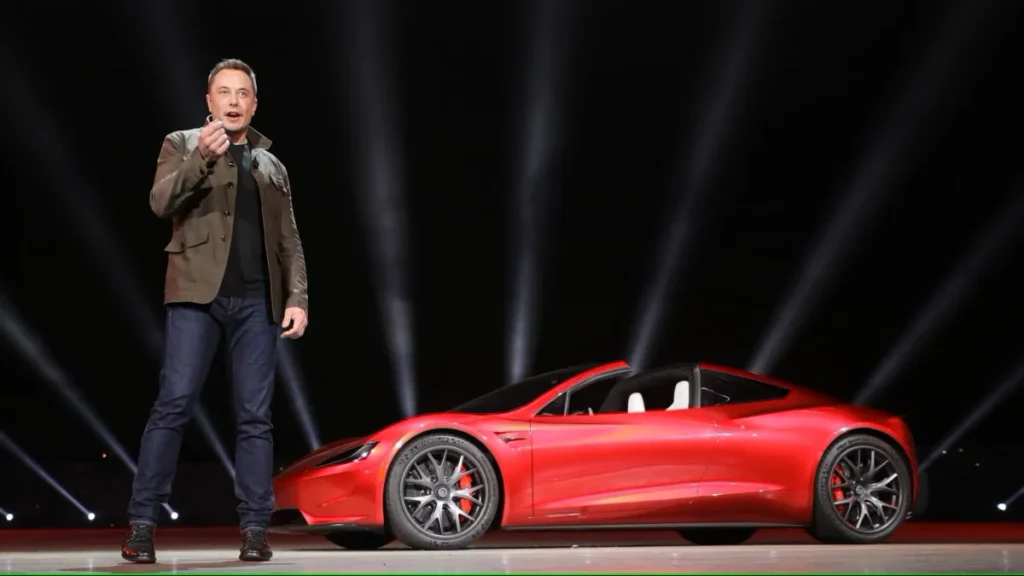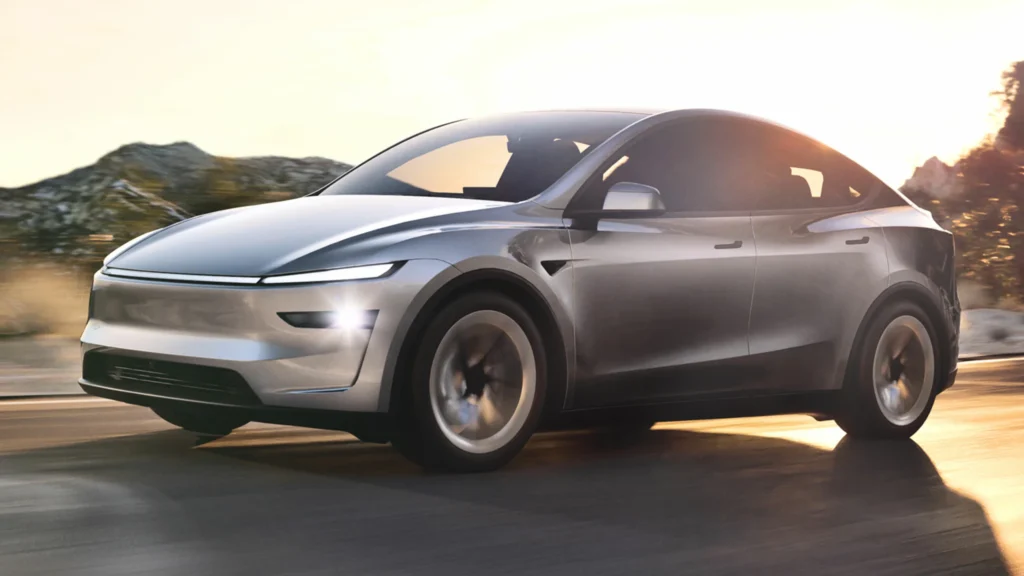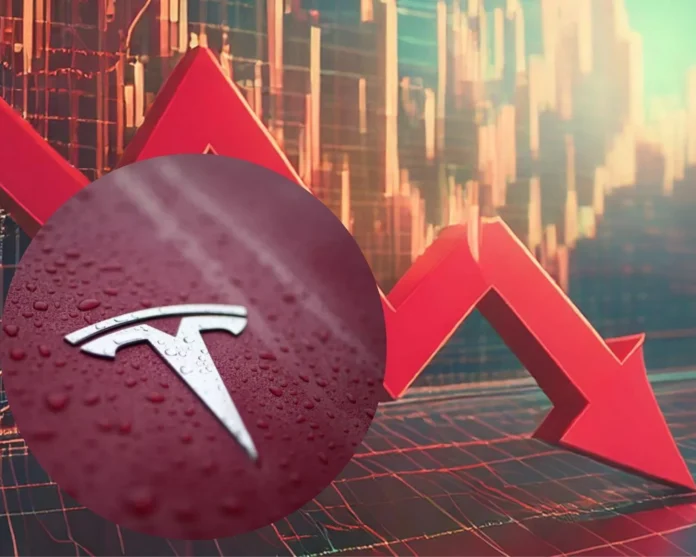Tesla Stock Decline: Introduction
Tesla’s stock has experienced a dramatic 45% drop over the past three months, raising concerns among investors about its valuation and future trajectory. While the company’s market capitalization remains significant, several factors have contributed to its recent downturn. As Tesla faces increased competition, regulatory uncertainties, and fluctuating investor confidence, many are questioning whether the company’s current challenges signal a long-term shift or just a temporary setback.
1. Declining Sales and Profitability
The electric vehicle (EV) giant has faced declining sales and shrinking profit margins, a trend that has unsettled investors. Tesla’s flagship Cybertruck, the first new model since the 2020 Model Y, failed to meet expectations, selling just 38,965 units last year—well below the projected 250,000. This shortfall has intensified concerns about demand and production efficiency.
Adding to the problem, Tesla’s overall vehicle deliveries have shown signs of stagnation, with some analysts citing growing competition and affordability concerns. The price cuts implemented to stimulate demand have squeezed profit margins, raising questions about the sustainability of Tesla’s aggressive pricing strategy. With higher interest rates making auto loans more expensive, some consumers are opting for lower-cost alternatives or delaying purchases altogether.
2. Political Controversies Impacting Investor Sentiment
Elon Musk’s political affiliations have played a role in Tesla’s stock volatility. Reports indicate that Musk provided financial support to Donald Trump’s election campaign, leading to speculation about the company’s positioning under the new administration. Additionally, Musk’s advisory role in Trump’s policy discussions has fueled uncertainty, with some investors worried about potential business implications.
Some market analysts argue that Musk’s growing political presence has distracted him from his responsibilities at Tesla, raising concerns about leadership focus. While Musk remains a visionary leader, his involvement in multiple ventures—ranging from SpaceX to Neuralink—has led some to question whether Tesla is receiving the attention it needs during a crucial period of transition and competition.

3. Increased Competition from Global Automakers
Tesla is facing mounting competition from global EV manufacturers, particularly in China. Companies like BYD have surged ahead, leveraging their strong hybrid vehicle market presence. In 2024, BYD sold 4.2 million vehicles, more than double Tesla’s sales, though its market capitalization remains significantly lower. The rise of such competitors has intensified pressure on Tesla to maintain its dominance.
Meanwhile, legacy automakers such as Ford, General Motors, and Volkswagen have expanded their EV lineups, chipping away at Tesla’s market share. In particular, advancements in battery technology and affordability improvements by competitors have made alternative EV options more attractive to consumers. As other automakers ramp up production and refine their EV strategies, Tesla’s first-mover advantage is beginning to diminish.
4. Policy Shifts Threatening Tesla’s Revenue
The new administration’s proposed policy changes have added another layer of uncertainty. President Trump, despite receiving Musk’s backing, has suggested ending EV subsidies—a move that could impact Tesla’s revenue. While Musk has downplayed these concerns, arguing that competitors would suffer more, investors remain cautious about potential financial setbacks.
If subsidies are removed, Tesla could face a tougher challenge in maintaining price competitiveness. Additionally, potential changes to import tariffs and international trade policies could impact Tesla’s supply chain, leading to increased production costs. These regulatory uncertainties make it difficult for investors to gauge the long-term financial health of the company.
5. The AI and Autonomous Vehicle Question

Tesla’s valuation has long been tied to its ambitious AI-driven autonomous vehicle plans. While Musk envisions Tesla leading the charge in self-driving technology, skepticism remains. Some analysts argue that the company’s current market value is driven more by hype than concrete technological breakthroughs. As competition in AI-driven transportation intensifies, Tesla’s ability to deliver on its promises will be crucial in determining its stock performance.
Moreover, regulators have increased scrutiny on self-driving technology, with concerns over safety and liability delaying widespread adoption. While Tesla has made significant strides in AI, its Full Self-Driving (FSD) software remains in a beta phase, and there are ongoing debates over whether the technology is truly ready for public use. If Tesla fails to deliver fully autonomous vehicles that meet safety regulations, its long-term growth prospects could be impacted.
What Lies Ahead for Tesla?
Despite its recent struggles, Tesla continues to command a significant market value of approximately $845 billion, surpassing the combined worth of several legacy automakers. The key question remains—will Tesla’s innovation-driven future justify its valuation, or is the stock poised for further correction?
Several factors will determine Tesla’s trajectory in the coming months:
- Product innovation: Will Tesla introduce groundbreaking new models that reignite consumer interest?
- Leadership focus: Can Musk balance his various ventures while maintaining Tesla’s competitive edge?
- Regulatory environment: How will government policies impact Tesla’s revenue streams?
- Competitive pressure: Can Tesla differentiate itself from the growing number of EV manufacturers?
As investors and industry experts debate these questions, Tesla remains a pivotal player in the EV market. The coming months will be crucial in determining whether the stock’s recent decline represents a long-term shift or a temporary setback in the company’s ambitious growth plans. Only time will tell.


